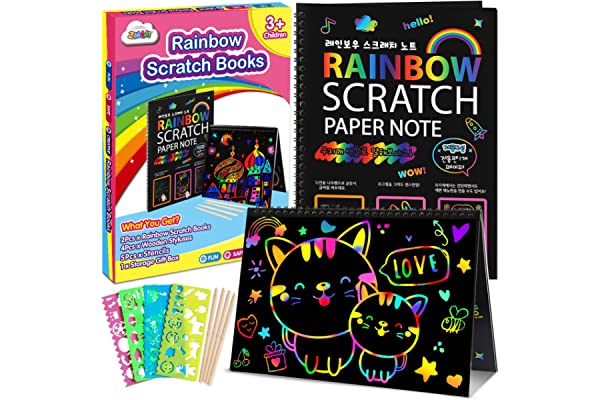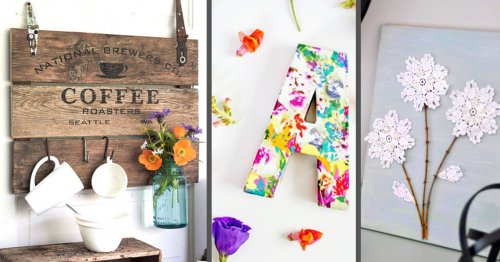
Knitting can be made easier by having the right tools. Knitting needs yarn and needles. The tools used to knit are equally important as the yarn. Knitting can be made easier for beginners, while expert knitters will get excellent results by choosing the right knitting tools.
Knitting needles come in a range of sizes and shapes. It's worth trying different types to find the right one for you. Wooden needles have better grip and friction while metal needles work faster. Metal needles may also be slippery and could cause stitches to drop.
People who knit with fine or thin yarns will love knitting thimbles. They keep yarns organized and from getting tangled. A double-ended crochet hook can be used to pick up any dropped stitches.

Knitting scissors is a vital tool for any knitter. To cut yarn for your projects, it is important to have sharp scissors. They can also be used as a snipper to cut ends. There are many types of scissors that can be used for knitting. Some even have special grips. For cutting yarn, small embroidery scissors work best. Locking stitch markers can be used to mark increases and divisions in your patterns.
To keep track of how many rows are being worked on a pattern, you will need a row counter. You can choose between a bar-style row counter that you place on the end a straight needle or a rainbow-style one that fits to a circle. The bar-style row counter is great if you want to keep track, without needing to rewind the yarn. There are also row counters that allow you to pull it off the needle.
You will also need a tape measure. You will also need a measuring tape to measure your knitted fabric length, number of stitches on one needle, and even your body size. A stitch holder will keep your stitches safe from being dropped off your needles. A stitch holder, a safety pin-style large needle, holds your stitches until they are ready for you to pick them up. These are particularly useful for knitting sleeves and gloves.
For more intricate knitting projects, you might also consider a ball-winder. This tool will wind up a hank of yarn into compact center-pull balls. A yarn swift is best used in conjunction with the ball winder. A ball winder is great for knitting hanks and creating complex color patterns.

Another tool you'll need is a gauge swatch ruler. This handy little ruler is great for measuring how many stitches will you need to make. If you are knitting with partial lengths of yarn, there are digital scales that you can use.
FAQ
What are observation hobbies?
Observation hobbies are those activities that allow you to watch others do what they do. This could be watching sports, reading books or going on holiday. You could also observe other people.
You can learn creativity through observation hobbies. You can use this knowledge later when you're working on projects for yourself or others.
You'll find that if you're interested in something, then you'll have an easier time learning about it.
For example, if you want to know more about football, you may watch a game or read a book about it. If you want to learn more about photography, you could take or visit exhibitions.
If you love to play music, there are two options: either buy a new guitar online or follow along with the songs.
You could also choose to cook at home or go to restaurants if you are a good cook.
You could also grow flowers or vegetables if you enjoy gardening.
If dancing is something you enjoy, join a dance class.
You can paint pictures if your passion is painting.
Writing poetry or stories is a passion if you are a writer.
You can draw pictures if your passion is drawing.
If you're passionate about animals you might consider working at a Zoo or looking after their pets.
If science is your passion, you might choose to study biology or chemistry.
History lovers can watch films, read books or listen to podcasts.
If you like traveling, you could travel abroad or explore your local area.
What are some great hobbies ideas?
Hobby Ideas for People who Love to Learn and Teach Others.
Hobbies are a great way for you to do what you love and also learn something new.
There are many hobbies. But they all share similar characteristics. These hobbies are often enjoyable and require minimal effort.
They also tend to involve working with others, whether teaching someone how to play an instrument or helping them build a model airplane.
You may not think of yourself as a teacher but there might be something you could do in order to help someone else learn.
Consider starting a hobby to use your creativity to help others.
How can I get started in my new hobby?
It is important to choose the type of hobby you want to start.
Passion is key once you have chosen your topic.
It is crucial to know why you want to pursue a hobby. This will help give you direction and provide a purpose.
Once you decide what kind of hobby you want, you can start planning.
You should think about the equipment you'll need.
Consider whether you need to attend classes or seminars.
Make sure that you have enough space in your home for your hobby.
You might also consider joining a club. These groups often offer advice and support.
The last thing you should do is think about how much money it would cost to pursue your hobby.
What are good hobbies for seniors?
Senior citizens should find activities they love to do. Senior citizens should be active and participate in other activities.
They may wish to join clubs, where they can find others who have similar interests. This will make them less lonely as they age.
Seniors need to keep up with current trends. For example, seniors could keep up with the latest fashions, art and literature.
Can I make money from my hobby?
Many hobbies can help you make extra money.
If your hobby is a passion, you may be able to sell related items.
You might consider setting up a website to sell rare stamps if you have a collection.
You can make extra money without the hassle of buying and selling stamps.
Another option would be to create a YouTube channel where you talk about your hobby.
This allows one to share their passion with others, potentially generating additional revenue through the offering of premium content.
What does a hobby cost?
Hobby costs nothing except time. But it could take years to achieve what you want if you are serious about it.
But there is one thing you can do to help yourself. It's called 'passion.' If you have passion for whatever it is you do, you will find it easier to put in the hours required to make progress.
You may become addicted to the activity once you have put in enough hours. Here is the fun part! Because you're doing something you like and it keeps getting better. You'll probably see a substantial improvement by the end.
Don't fret about how long this takes. Give it a shot. You may be surprised.
What hobbies are best for introverts and what types of hobbies would they enjoy?
The ability to focus on just one thing is a hallmark of introverts. They tend to prefer solitary activities such as reading, writing, playing music, watching movies, etc.
They enjoy being alone and spending time alone. They do not like to socialize all day. They can even become bored when they're surrounded by people.
Introverts may choose to do hobbies that are more alone-oriented. For example, they may enjoy reading books, listening to music, taking photographs, painting, writing poetry, etc.
Some introverts even choose to live alone. They can concentrate on their hobby without being distracted.
Statistics
- Almost 80% of people claim to have no hobby. (hobbylark.com)
- 37% Video Games 36% Travel 36% Health and Fitness (quizexpo.com)
- I am 100% biologically a woman (discover.hubpages.com)
- Much of this decline reflects the fact that teens are less likely to work today than in the past; among employed teens, the amount of time spent working is not much different now than it was around 2005. (pewresearch.org)
- Studies show that just six minutes of reading can reduce stress levels by 60 percent. (oberlo.com)
External Links
How To
How to learn a musical instrument
There are many options for learning how to play the piano. You could go to a school or buy a book. You could also take lessons from an experienced musician, watch videos online, and so on. However, if you decide to find your own way to learn, here are some tips and tricks that might help you out.
-
Find something that interests and you. If you don't like any of the instruments you see around, then you should try another one. It's difficult to take up a hobby if you don’t love playing the instrument.
-
Be patient. Learning something new takes time. Don't expect to master everything right away. Instead, keep practicing every day.
-
You should practice often. Even when you feel tired, continue practicing. This will make sure you don't forget the lessons you have learned.
-
You should choose a comfortable place to practice. It is best to find a quiet space where you will not disturb others. You should also make sure there aren’t any distractions. Avoid loud music, for example.
-
Have fun! Music is meant to be enjoyed. Make sure you have fun while practicing. You'll be more motivated to practice if you enjoy yourself.
-
Set goals. When you set goals, you know exactly what you have to achieve. Failure is not an option.
-
Keep track of your progress. Note down your successes and mistakes. Doing so will help you improve over time.
-
Take breaks. Sometimes you just need to take a break. Take breaks to allow you to reflect on things.
-
Ask questions. Ask other people if you have any doubts or confusion regarding certain aspects of the instrument. They may be in a position to assist.
-
Listening is the best way to learn. Many musicians learn by listening to the songs they love and then imitate them. This helps them understand basic concepts behind the song.
-
Read books. Lessons learned from books are more valuable than videos and classes. You will also find information in books that you won't find anywhere else.
-
You can join a band. You'll be more motivated to practice when you are playing with others. Plus, you will meet people who share similar interests as yours.
-
You can watch tutorials. Tutorials are short videos which explain many topics in great detail. These videos typically focus on one aspect of the instrument. Tutorials can help you understand complex parts of your instrument.
-
Try different methods. Some people prefer to learn via lectures while others prefer to read. Keep trying until you find your preferred method.
-
Practice makes perfect. It is not possible to become an expert overnight. It is important to put in a lot of effort before you can become skilled enough to perform well.
-
You can learn from other musicians. Listening to your fellow musicians perform their favourite songs can help you learn quicker.